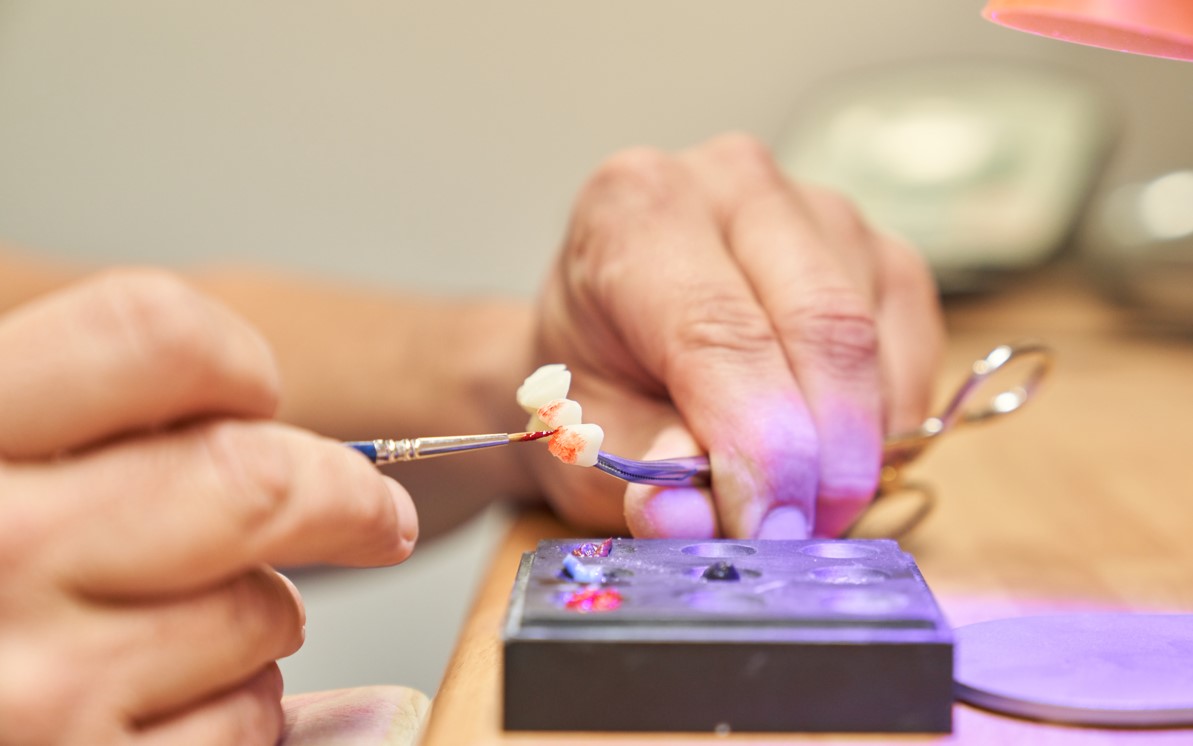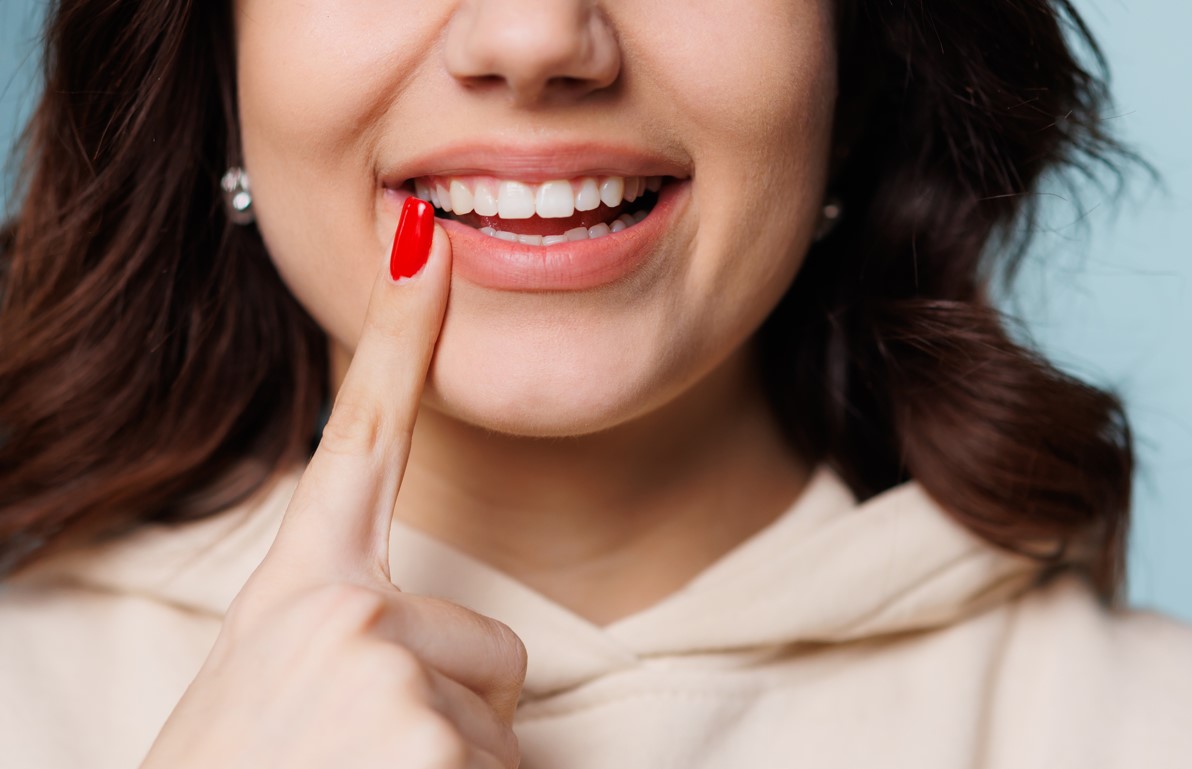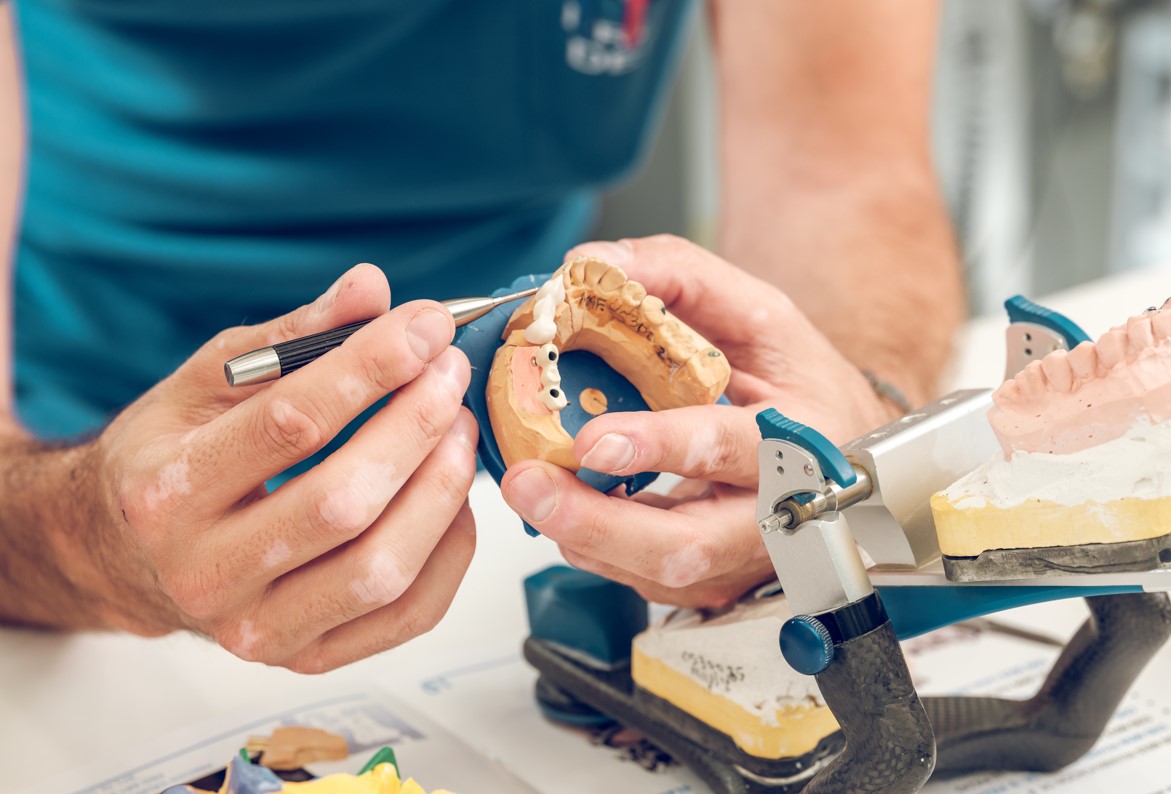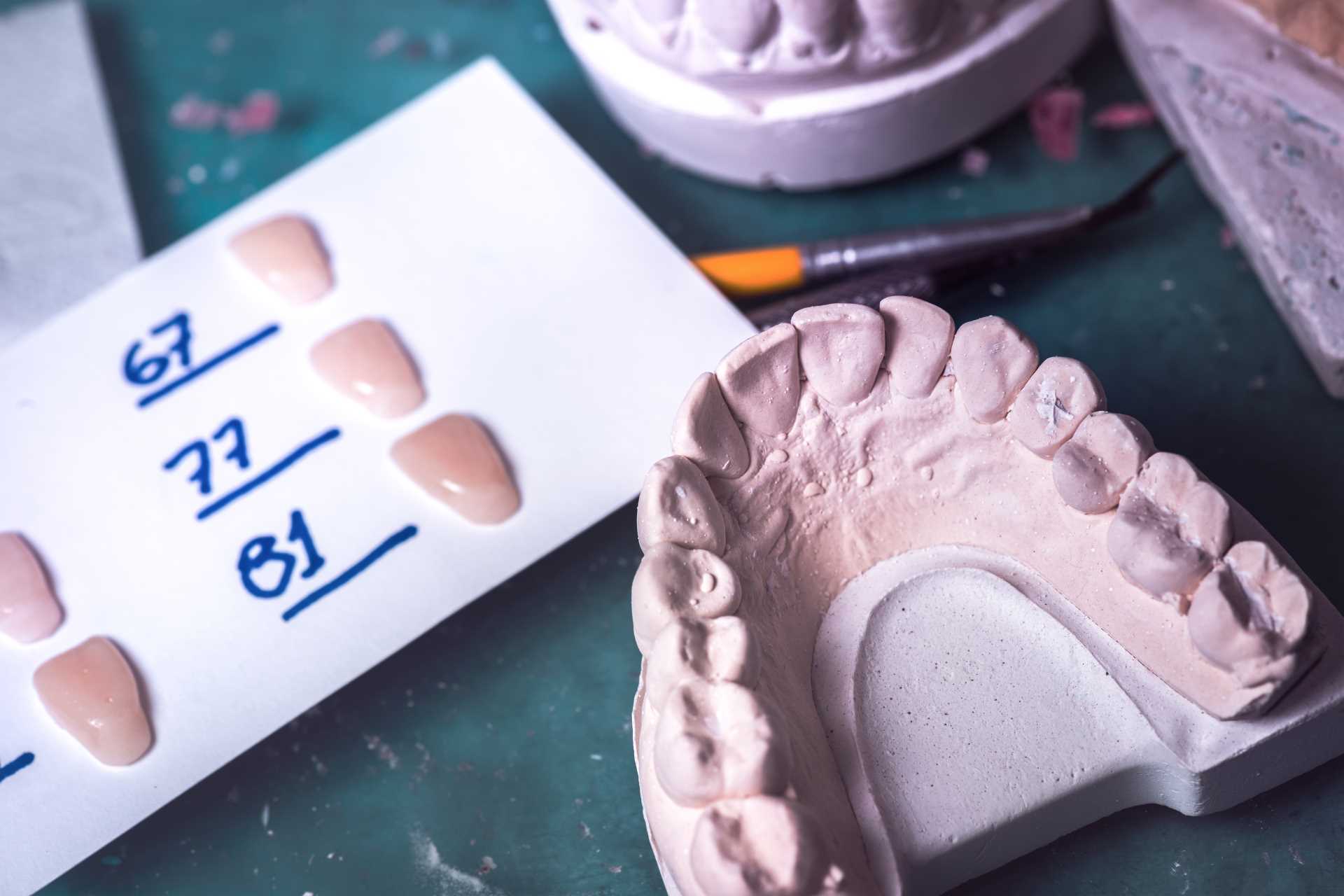Best Denture Adhesives
If you find your dentures slipping and shifting, it can have a big impact on your life as everyday tasks such as eating, swallowing, and talking can become difficult. To fix this problem, it may be worthwhile getting a dental adhesive to help secure your dentures. However, with all the denture adhesives on the market, it can be quite overwhelming trying to find the right one for you.
To help you, we’ve compiled a quick guide of the best denture adhesives available, and whether denture relining or implant retained dentures are the better solution for you.
What is dental adhesive?
Denture adhesives or ‘denture glue’ is a product designed to help keep your dentures in place. It’s applied to the underside of your dentures and works by creating a more secure attachment to the gums. It’s available in gels, creams and pads, and is often used by patients who have had their dentures for a long time and are experiencing slippage from wear and tear. Denture glue can also be used if a patient is a bit worried about their dentures slipping out, as it provides some additional security. It’s worth asking your dental technician for their opinion on the best denture adhesives available, as you might be able to purchase some directly for your denture clinic.
Do I need to use dental glue?
If your dentures are fitted correctly you shouldn’t have to use dental adhesives. It’s worth talking to your dental technician if your dentures are slipping or falling out, as it might be a sign that you need denture relines. Dentures can become loose for several reasons, with wear and tear being the primary cause. As you age, your mouth will change shape. This is further accelerated by tooth loss, as the roots of teeth are what keeps your jawbone strong. When dentures no longer fit properly, they can cause a lot of discomfort for a patient. Signs your dentures don’t fit correctly include:
- Difficulty speaking, eating, or swallowing
- Dentures that move or slip
- Pain or sores in the gums
- A clicking noise when eating
Some patients may find that they need to use dental adhesives to keep their lower dentures in place. Unlike top dentures, lower dentures have nothing to suction onto, which can make it quite difficult for some patients to keep in place.
Best denture adhesives
There are a few types of denture adhesives, with the most common being the following:
Pastes: Denture paste or ‘denture cream’ are one of the best dental adhesives available as they’re incredibly easy to use. A denture cream is applied to the underside of a denture and creates a protective layer between the denture and gums. The only major drawback with denture cream (other than having to apply it) is that it sometimes has the potential to spread outside of the denture.
Pads (strips): Denture pads are dental adhesive strips that are designed to be cut to size and placed on the underside of dentures. After the strips are placed, the dentures can then be attached to the gums. These types of denture adhesives are less messy than standard dental adhesives but can end up being quite costly.
Powders: A dental adhesive powder is designed to be sprinkled onto the clean, wet gums and is a less messy alternative to creams. The powder quickly works to set an airtight bond to keep your dentures firmly in place.
Dental adhesives vs implant retained dentures
Applying dental adhesive can be an arduous task for many and isn’t always ideal for patients with sensitive gums. If you’re experiencing slippage, it’s likely had a big impact on your daily routine. Loose dentures or bottom dentures that won’t fit can make everyday life difficult, as eating or speaking can be disrupted. Implant retained dentures are specifically designed to fix this problem. These dentures work by securing onto four dental implants installed into the gums as anchor points. The dentures can easily clip onto the gums and provide unparalleled stability once they’re set in place.
We hope our article on ‘Best denture adhesives’ has given you some guidance on what types of denture adhesives are right for you.
If you find your dentures are slipping or are looking for a better solution than using adhesive daily, you can find a clinic near you.
You’re welcome to contact us online or call us on 1300 304 092 to have an in depth discussion about dental adhesive with one of our dental technicians.
Related Posts

Foods to Avoid with Dentures
Foods to Avoid with Dentures Dentures are a majorly beneficial and life changing solution for many people around the world, however, that doesn’t mean they don’t come with responsibility and the need for proper upkeep. It’s important to ensure you’re eating the correct foods and drinking the right drinks that keep your dentures intact and

Do Partial Dentures Look Natural?
Do Partial Dentures Look Natural? The simple answer is yes, partial dentures can look natural. But there are a few things you need to know in order to make sure that yours look their best. Partial dentures are specifically designed to match the shade and shape of your existing teeth, so they should blend in

Dentures and Saliva – What You Need to Know
Dentures and Saliva – What You Need to Know If you wear dentures, saliva problems may be an issue that you have to deal with on a daily basis. Dentures and saliva have a complex relationship. Saliva helps to keep your mouth moist and aids in the digestion of food as well. Without enough saliva,

Can You Get Same Day Dentures: An Informative Guide
Can You Get Same Day Dentures: An Informative Guide Same day dentures are generally referred to as immediate dentures and are often so used as a resolution and replacement for individuals who have had teeth removed. Although they are an immediate solution, they are only temporary to fill in the missing space in the gums.

How Are Dentures Made?
How Are Dentures Made? Have you ever wondered how are dentures made? As dental prosthetists, we get asked this question a lot, so we set out to answer the question of how are false teeth made and shed some light on the denture making process. How are Dentures Made to Perfectly Fit Each Individual Patient?

Famous People with False Teeth
Famous People with False Teeth We know that getting dentures can be a daunting new experience, and you may feel insecure about your new set of teeth. All of this will go away once you’re used to your pearly whites, and the uncomfortable sensation you’re feeling will subside. No matter your age, there’s no need
We do whatever it takes to bring you peace of mind
1300 304 092
Call us today
